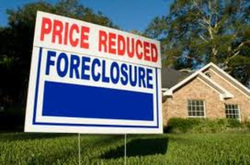
New Jersey is facing a twin crisis of foreclosures and lack of affordable housing, but Gov. Chris Christie recently vetoed two bills that would have brightened the outlook for New Jersey residents struggling to afford homes.
The first bill would have empowered New Jersey’s Housing Mortgage and Finance Agency to purchase foreclosed homes and transform them into affordable housing. In doing so, New Jersey would combat the crime and blight brought about by vacant homes, while also increasing housing opportunities for low- and moderate-income families.
The first bill would have empowered New Jersey’s Housing Mortgage and Finance Agency to purchase foreclosed homes and transform them into affordable housing. In doing so, New Jersey would combat the crime and blight brought about by vacant homes, while also increasing housing opportunities for low- and moderate-income families.
The bill had support not only from housing advocates, but from a broad swatch of businesses. What’s more, it would have been implemented without requiring state appropriations.
The second bill would have improved New Jersey’s program to help unemployed or underemployed homeowners make their mortgage payments. This program, funded by a $300 million grant from the federal government’s Hardest Hit Fund program, has badly underperformed for years: according to the most recent statistics, the program has denied assistance to more than double the number of applicants it has helped, and it has spent less than one twentieth of the funds available (although changes have recently been announced that may improve the program). The bill would have mandated that the program respond to applicants and issue aid more quickly.
Christie’s decision to veto these bills is puzzling, to say the least, given the challenges facing New Jersey’s housing market and families. While the housing market is improving in most of the country, it’s getting worse in New Jersey. New Jersey’s percentage of homeowners who are not current on their mortgages increased the most of any state in 2012, and delinquencies remain especially elevated in areas affected by Hurricane Sandy.
Likewise, New Jersey has the second highest percentage of homes in the foreclosure process, with as many as 150,000 foreclosed homes soon to be on the market.
At the same time, New Jersey faces a dire shortage of affordable housing units, with half of all homeowners and an even larger number of renters facing cost burdens.
Unfortunately, Christie’s inaction on New Jersey’s housing challenges is nothing new. Instead of helping New Jersey homeowners, Christie used all of the state’s share of the landmark National Mortgage Settlement to fill budget holes in the state’s general fund. Christie is also attempting to weaken the process by which New Jersey guarantees that affordable housing will be built in communities across the state.
The second bill would have improved New Jersey’s program to help unemployed or underemployed homeowners make their mortgage payments. This program, funded by a $300 million grant from the federal government’s Hardest Hit Fund program, has badly underperformed for years: according to the most recent statistics, the program has denied assistance to more than double the number of applicants it has helped, and it has spent less than one twentieth of the funds available (although changes have recently been announced that may improve the program). The bill would have mandated that the program respond to applicants and issue aid more quickly.
Christie’s decision to veto these bills is puzzling, to say the least, given the challenges facing New Jersey’s housing market and families. While the housing market is improving in most of the country, it’s getting worse in New Jersey. New Jersey’s percentage of homeowners who are not current on their mortgages increased the most of any state in 2012, and delinquencies remain especially elevated in areas affected by Hurricane Sandy.
Likewise, New Jersey has the second highest percentage of homes in the foreclosure process, with as many as 150,000 foreclosed homes soon to be on the market.
At the same time, New Jersey faces a dire shortage of affordable housing units, with half of all homeowners and an even larger number of renters facing cost burdens.
Unfortunately, Christie’s inaction on New Jersey’s housing challenges is nothing new. Instead of helping New Jersey homeowners, Christie used all of the state’s share of the landmark National Mortgage Settlement to fill budget holes in the state’s general fund. Christie is also attempting to weaken the process by which New Jersey guarantees that affordable housing will be built in communities across the state.
 RSS Feed
RSS Feed